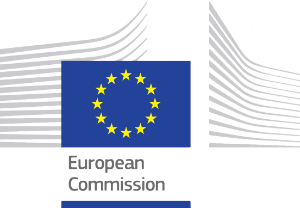The conference "Cultural heritage, innovation and sustainable development: the contribution of ReΙnΗerit" organized by the Hellenic Committee of the Blue Shield was held in Athens, on 27th November 2023 in a hybrid (phygital) mode to facilitate the participation of international speakers and audiences and thus have a glocal impact, increase the ReΙnΗerit project’s visibility and improve its branding. The conference aimed at assessing the contribution of the ReΙnΗerit project to sustainable development and compile policy recommendations made by the experts participating in it. Following the conference, a survey was conducted to understand how familiar the audience of our conference was with the outputs and the tools offered by the ReInHerit project and to create the conditions for a larger number of people to benefit from them. At the same time, the goal was to draw conclusions on what policies should be implemented to address the challenges CH professionals are facing at an EU level. This survey made use of quantitative and qualitative data based on both open-ended and closed-ended, multiple choice questions. It was anonymous, was used to assess and evaluate the ReInHerit project’s added value. The conference included four sessions. Session Α. ReΙnΗerit and social sustainability This session was dedicated to the contribution of the Reihnerit project’s tools to the social dimensions of sustainable development. The overall aim was to showcase its model of social sustainability, focusing on its contribution to human development, based on cultural participation and accessibility to cultural heritage, respect of cultural diversity and viability of cultural institutions. Session Β. ReΙnΗerit and economic sustainability The second session was dedicated to the contribution of Reinherit’s tools to economic sustainability of cultural organizations and local communities. Apart from the connection of Reinherit to the promotion of smart tourism and the contribution of cultural tourism and creativity to regional economies, other issues dealt in the project such as intellectual property rights and innovation were addressed. SESSION C. Reinherit and environmental sustainability This session focused on the Reinherit model contribution to environmental sustainability which encompasses the conservation of the broader cultural environment. SESSION D. Reinherit, peace and security and sustainability This session focused on the connection between the Reinherit project and the topics of peace, security and sustainability.
Some brief conclusions that can be drawn are the following:
In relation to the social sustainability dimension and the cultural heritage – innovation nexus, the focus on the ReInHerit methodology showed that what is of great importance is to facilitate participation, accessibility and social inclusion. Regarding the economic sustainability dimension and the cultural heritage – innovation nexus, it was shown that digital environments are key if we are to achieve community engagement and interaction, whereas digital learning platforms are crucial for the upskilling and reskilling of professionals. This was highlighted also in the survey conducted, with the vast majority of participants responding that they need to receive training and be provided with practical guidance. In terms of new technologies and digital social innovation, it was made clear that access and openness should be promoted, and investment is needed. Another issue that was underlined related to the environmental sustainability dimension and the cultural heritage – innovation nexus. A holistic approach is what is necessary in the implementation of the EU Green Deal and driving action in line with the SDGs. Finally, regarding Reinherit, peace, security and sustainability, there are three basic challenges that need to be addressed. Firstly, to ensure that a human centered approach is at the heart of the application of digital solutions and the development of new technologies. Secondly, to facilitate participation and thirdly to involve all stakeholders. All the measures and the policies to be implemented should take into account the role of cultural heritage in societies, integrate good practices already in place by international organisations, and last but not least have an integrated approach to culture, cultural values and cultural rights in the sustainable development goals.

